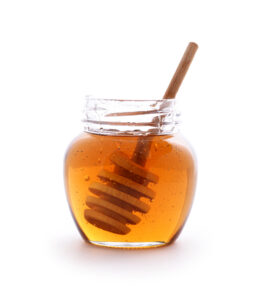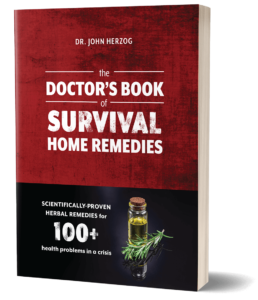Introduction
Sometimes you need something to give you relief while you are waiting to get a doctors appointment. Home remedies for a cough should never take the place of a doctors visit but they may give relief while you are waiting for that appointment or if you just think your symptoms are too mild to need a doctor visit.

Honey
Honey has long been used as a natural remedy for soothing sore throats and relieving coughs. Numerous studies have found that honey is an effective treatment for coughing and other respiratory illnesses. Its antiviral, antibacterial, and anti-inflammatory properties make it a great option for treating both dry and productive coughs.
The most common way to take honey for cough relief is by diluting it in hot tea or water. Honey helps thin mucus, soothe irritated throat tissues, and reduce inflammation. It also coats the throat with a protective film that can help relieve irritating symptoms. For maximum benefit, take 1 to 2 tablespoons of honey every four hours or as needed.

Ginger, Lemon, and Honey Tea
Lemon juice and ginger tea are two well-known natural remedies for treating coughs. The combination of the two has powerful anti-inflammatory, antibacterial, and antiviral properties that can help soothe a sore throat, reduce congestion, and ease coughing symptoms.
To make lemon ginger tea, start by boiling one cup of water. Then add one tablespoon of freshly squeezed lemon juice, 1/2 teaspoon of grated ginger, and 1 to 2 teaspoons of honey. Let the mixture steep for several minutes before drinking it hot. The tea can be enjoyed up to three times a day for cough relief.
Gargling with Salt Water
Gargling with salt water is an effective natural remedy for relieving a cough. It helps reduce inflammation and kills the bacteria that can cause a sore throat, as well as loosening mucus and clearing congestion. Gargling with salt water can also help soothe irritated throat tissues and relieve coughing symptoms.
To prepare the solution, add half a teaspoon of salt to one cup of warm water. Stir until the salt dissolves and then gargle with it for at least 30 seconds. Spit out the solution after gargling and repeat up to four times a day if needed.
Steam Inhalation
Steam inhalation is a common home remedy for treating a cough. It is an effective way to reduce congestion and loosen mucus in the airways. It can also help soothe irritated throat tissues and relieve coughing symptoms. Steam inhalation is an easy, safe, and non-invasive treatment that can be done at home with minimal setup.
To use steam inhalation, simply fill a bowl with boiling water and add one to two drops of an essential oil such as eucalyptus or peppermint. Place your face over the bowl, cover your head with a towel, and inhale the steam for 10 minutes at a time. Do this twice every day or as needed for relief from a cough.
Herbal Teas
Herbal teas are an effective and natural way to relieve the symptoms of a cough. Herbs such as licorice root, marshmallow root, slippery elm bark, turmeric, ginger root, and thyme have expectorant properties that can help loosen mucus in the throat and relieve coughs.
To make an herbal tea, add one teaspoon of the desired herbs to one cup of boiling water and steep for 10 minutes. Strain the tea before drinking and sweeten it with honey if desired. Drink three or four cups a day as needed for relief from coughing symptoms.
Licorice root, marshmallow root, slippery elm bark, turmeric, ginger root, and thyme can be purchased at many health food stores or online outlets. Licorice root can be found in powder or capsule form and is typically taken in doses of 500 milligrams (mg) to 2 grams (g) per day. Marshmallow root should be taken in doses of 500 mg to 3 g per day, while slippery elm bark can be taken in doses of 1–2 teaspoons (tsp) up to three times a day. Turmeric, ginger root, and thyme can all be taken in capsule form or added directly to food and beverages for flavor. You can also buy many of these herbs from Mountain Rose Herbs in bulk.
By incorporating these natural remedies into your daily routine, you can help to reduce the symptoms of a cough and breathe easier. Always seek medical advice before trying any new remedy or supplement, however.
See my articles on Marshmallow root and Licorice.
Nasal Rinse
A nasal rinse is an effective way to clear out mucus from the nose and throat. To do this, fill a neti pot with lukewarm distilled or previously boiled water, add 1/4 teaspoon of non-iodized salt, and tilt your head to the side over a sink. Pour a small amount of the solution into one nostril while keeping your mouth open and allowing it to drain out of the other nostril. Repeat the process on the other side.
A nasal rinse can help to remove mucus, allergens, and irritants that can cause coughing. Be sure to use distilled or previously boiled water for your rinse as tap water may contain harmful bacteria.
OK I have to admit I can’t see myself doing this one. It sounds painful. But that’s just me.
Humidifier
Using a humidifier for treating a cough can be an effective and convenient way to soothe the throat and chest. The added moisture in the air helps to thin out mucus, making it easier to expel from the body. It also helps to reduce inflammation of the airways, which can reduce coughing fits. Additionally, dry air is more likely to irritate the throat, so having a humidifier in your home can help reduce coughing caused by dry air.
Steam Therapy
Steam therapy is another effective way to ease cough symptoms and clear out mucus from the lungs and airways. To do this, boil some water in a large pot or bowl, then place a towel over your head and lean over the pot. Be careful not to get too close as hot steam can cause burns. Allow the steam to reach your face and inhale deeply. Do this for about 10 minutes twice a day for best results.
Over-the-Counter Medications
Over-the-counter medications such as antihistamines and decongestants can be used to treat a cough. These medications work by reducing inflammation in the airways, which reduces coughing fits. Antihistamines also act as anti-allergy medications, blocking the release of histamine from mast cells, which helps reduce allergic reactions that can trigger coughing. Always read the directions and warnings on these medications to ensure they are safe for you to take.
Natural Supplements
Natural supplements can also be beneficial for treating a cough. Vitamin C is one of the most popular supplements and can help to reduce inflammation in the airways, preventing coughing fits. Additionally, it is a powerful antioxidant that helps to protect cells from damage caused by free radicals. A daily dosage of 500-1000mg of Vitamin C can be taken to help with coughs.
Other natural supplements such as eucalyptus and honey can also be taken to treat a cough. Eucalyptus is an expectorant that helps loosen mucus from the lungs, while honey has anti-bacterial properties that can reduce coughing fits caused by bacterial infections. Both of these remedies should be taken in small doses and should not be taken by children under the age of 2.
Alternative Therapies
Several alternative therapies can help to reduce coughing fits. Acupuncture is one such therapy that involves inserting very thin needles into specific points on the body, stimulating certain nerve pathways to encourage healing. This treatment has been found to be effective in reducing inflammation and loosening mucus from the lungs.
Other alternative therapies such as herbal tea, aromatherapy, and acupuncture can also be used to help reduce a cough. Herbal teas are made from natural herbs that have anti-inflammatory properties, while aromatherapy uses essential oils to target certain areas of the body for healing. Acupuncture is an ancient Chinese practice that has been used to help reduce coughing fits for centuries.
No matter which treatment you choose, it is important to consult with your doctor before beginning any sort of therapy. They will be able to recommend the best course of action and provide you with advice on what treatments may be the most beneficial for your particular condition. Remember that treating a cough should not be taken lightly
Avoid Irritants
Avoiding irritants such as smoke, dust, and strong odors is an important part of treating a cough. Exposure to these triggers can increase coughing fits and make it more difficult to manage the condition. To reduce exposure to these triggers, it is important to identify the sources of irritation in your environment and put measures in place to limit or eliminate them. In addition, it is important to keep a clean and well-ventilated home to avoid any additional irritation.
In children under the age of 2, it is recommended that parents use saline drops or an inhaler containing a bronchodilator (such as albuterol if recommended by a doctor) if the cough persists for more than a few days. Bronchodilators help open up the airways and allow for better breathing. This can help reduce coughing fits and provide relief from shortness of breath.
Finally, drinking plenty of fluids and staying hydrated can also help reduce a cough. Staying hydrated helps thin out mucus, making it easier to expel from the lungs during a coughing fit. Additionally, drinking fluids can soothe the throat and provide relief from irritation caused by coughing.
Get Plenty of Rest -Benefits of getting plenty of rest for treating a cough
Getting a good night’s sleep is an important part of treating a cough. Poor sleep can worsen coughing fits and make them more difficult to manage. Here are some tips for getting a good night’s sleep:
1. Stick to a regular sleep schedule – Developing and sticking to a consistent bedtime routine is one of the best ways to ensure you get enough rest.
2. Create a comfortable sleeping environment – Designing a room that encourages relaxation can help improve the quality of your sleep. Consider reducing noise and light levels in the bedroom and investing in comfortable bedding.
3. Avoid stimulants late in the day – Stimulants such as caffeine, nicotine or alcohol can interfere with your sleep. It is best to avoid these substances at least several hours before bedtime.
4. Exercise regularly – Regular physical activity can help reduce a cough and improve overall health, but it’s important to avoid exercising too close to bedtime as this can interfere with your sleep.
By following the steps outlined above, you should be able to reduce a cough, get plenty of rest and improve your overall health. This can help you feel better quickly and get back to living life to the fullest.
With the right combination of treatments, you can treat your cough effectively and prevent future occurrences. It’s important to talk to your doctor about which treatments are right for you and follow their instructions carefully. By making these lifestyle changes and taking the appropriate medications, you can finally get rid of that annoying cough. Good luck!
Note: This content is for informational purposes only and should not be considered medical advice. As always, consult with your healthcare provider before taking any herb or making any changes to your diet.

